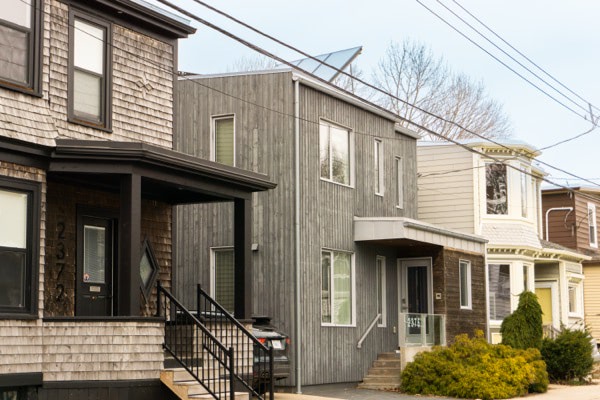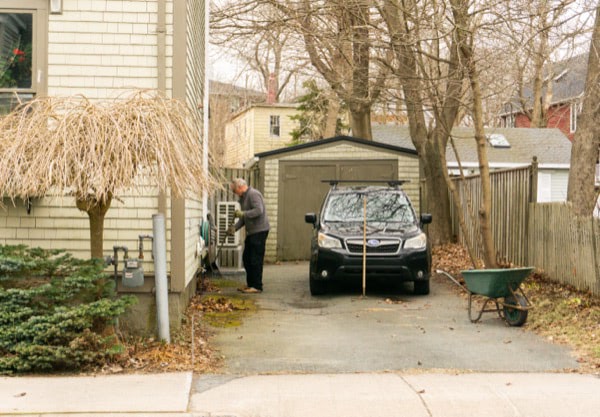Considering summer home renovations this year? Here are some home improvement and green energy projects to take on!

Should you start investing in real estate?
Have you ever considered investing in real estate? If so, you’ll know there’s plenty of opportunities in this area. Whether you’re thinking about investing in a residential property to rent out, a commercial or industrial property, or buying land, the move to start investing can open a lot of doors for you. This industry often attracts people because of its potential for passive income and decision-making power.
However, real estate investing comes with its own unique considerations that don’t exist with forms of investing in different areas. Choosing to invest in 2021 is also different from most years in the past. Here’s what you should consider before you decide to start investing right now.
Pros of investing in real estate
The decision to invest in real estate has some powerful advantages. These are the main draws for many people who choose to get involved in this area of investing.
Real estate appreciates in value
Most real estate properties appreciate in value over time. This is especially true for residential properties, as housing prices are constantly rising, often quicker than inflation rates. This means if you start investing in real estate, you’ll be purchasing something that will become more and more valuable as time goes on. This helps you build equity, which is the value of the property you own. The market value of the property will continue to increase, so the more you own, the more equity you build.
Rental investment properties provide cash flow
If you’re interested in buying a home for rental purposes, this is a pretty safe way to guarantee cash flow for yourself. Depending on the location you buy, you might be in an area where the demand for rental properties is high. Renting out a property means you always know exactly how much income you’ll be earning each month, and it’s a fairly safe way to ensure the money will come through. This type of income is fairly passive as well, meaning you can earn this money without it being your job. Of course, you’ll have to pay certain bills, taxes, and mortgage payments with tenants’ rent, but any leftover money is your cash flow.
You have more control
Many forms of investing are beyond your control once you commit to them (for example, stocks and bonds). However, if you start investing in real estate you’ll have lots of decision-making power. Owning or being an investor of a property means you have control over how the building or land is maintained, as well as choice over tenants and pricing. This freedom and level of control is comforting for many people who want to closely oversee their investments and feel like they’re in the driver’s seat.
Cons of investing in real estate
As advantageous as real estate investing can be, it also has some drawbacks. These are the biggest barriers for people right now.
Difficult to enter the housing market
Right now, much of Canada is still in a seller’s market. Low interest rates and high housing prices are driving an intense market, and buying any kind of property is very tricky. It takes a lot of commitment to find a home to live in, let alone an investment opportunity. The payoff will be worth the process, but it’s a challenging job to take on right now. Buying under market value is largely not an option, so you’ll likely be paying a lot for the property.
A pricey investment
Buying any kind of investment property will likely be more expensive than most other forms of investing in different areas and industries. Investing in real estate means a down payment, mortgage costs, closing costs, maintenance, utilities, taxes, etc. These costs don’t exist in other investments, making real estate a unique situation. Even though real estate appreciates in value over time, you’ll be losing a lot of money starting out. As far as investment projects go, real estate is the most expensive option.
You’re in it for the long haul
Once you commit to buying an investment property, you’re locked in for a long time. You can’t just back out of a real estate investment the way you can with other forms of investing. When you start investing in real estate, it becomes your responsibility to handle all associated costs, and you’ll face big penalties for breaking any terms. Even if everything is paid off, selling an investment property is a long process. You’re in for a long experience of maintaining this investment, and it’s not something you can use to access cash quickly, even though you’ll be building equity.
When is investing in real estate a good idea for you?
You have a clear vision
Don’t go into real estate investing without a plan or a clear idea of the kind of property you want to pursue. Just like with buying a home for yourself, you should know what you’re looking for and have a plan for locations and budgets. This investment is a lot more hands-on than investing in something like the stock market, and you can’t do it without a ton of focus. You need to know what kind of real estate you want to get involved in, as well as whether you want to do it solo or with other investors. If you have a clear vision in your head of what you want, it might be a good idea for you to start investing.
You have the funds
Any form of investment requires some kind of upfront payment, but especially real estate. Don’t jump into real estate investing without the proper funds to get started. You might be in a good place to begin this form of investing if you’ve been saving up for a down payment, or any other associated costs. Remember that different forms of real estate investing will come with different expenses, so be sure you know what costs are associated with your investment plans.
The decision to start investing in real estate can be a great option for you and it presents many opportunities, but it’s important to be aware of the potential risks as well. If you have any questions about investing or buying a home, get in touch with us at Clinton Wilkins Mortgage Team! You can call us at (902) 482-2770 or contact us here.


